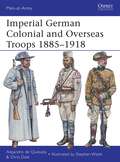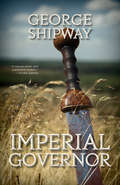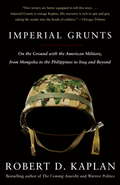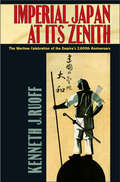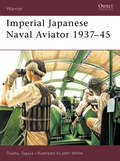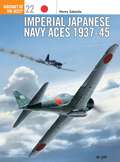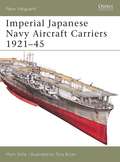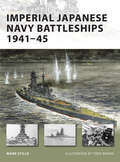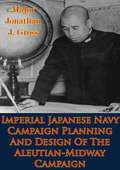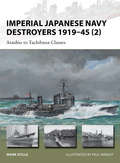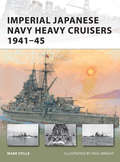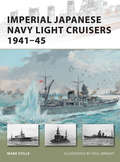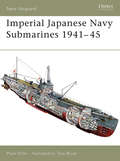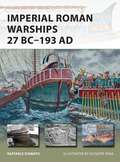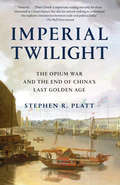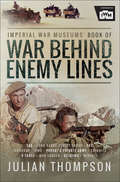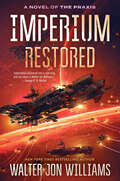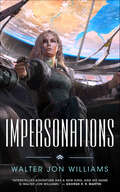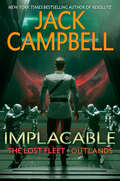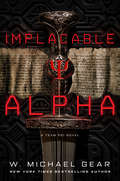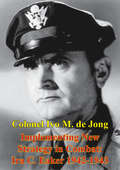- Table View
- List View
Imperial German Colonial and Overseas Troops 1885-1918
by Stephen Walsh Alejandro QuesadaFrom the Boxer Rebellion to Tsingtao to German East Africa (Tanzania), and colonies across Africa and the central Pacific, the Kaiser's Second Reich created a worldwide empire, and then lost it. Following Prussia's victory over France in 1871 and German unification, the invigorated Second Reich sought international status alongside the older colonial powers - Britain, France, Spain and Russia. Actual overseas settlement was always sparse, counted in the low tens of thousands only, but by the mid-1880s German trading companies had established footholds in what became German East Africa (Tanzania), German South-West Africa (Namibia), and German West Africa (Cameroon, and Togo). To consolidate their position against native resistance, and to extend their frontiers, the German Imperial government soon took over these enclaves as colonies or 'protectorates'. In the 1890s it established a new branch of the armed forces, the Schutztruppe, composed largely of African askaris with German officers and NCOs, backed up by German artillery and machine guns. In parallel, the Imperial Navy raised marine battalions - eventually, three Seebataillone - to protect its overseas bases and to reinforce the colonies as needed. After German participation in putting down the Boxer Rebellion (1900) their primary responsibility was the German concession territory at Tsingtao in China, where Germany also raised a local East Asia Brigade; but the marines also served in the German Pacific possessions - Samoa, New Guinea, the Bismarck Archipelago, the Northern Solomon Islands, the Marshalls, Marianas and Carolines. Marine companies were also rotated through the African colonies at need. In addition to small-scale 'police' work, the brief German colonial period involved putting down rebellions in East Africa (1888-98) and Cameroon, and crushing - with great ruthlessness - the determined resistance of the Herero and Nama tribes in SW Africa (1890-1907), where there was a degree of German settlement. In World War I, Germany soon lost almost all her colonies to much stronger Allied forces. In China, Tsingtao was captured late in 1914 by a Japanese force with token British assistance. Resistance was minimal in the Pacific; and in 1915 the last defenders of German South-West Africa surrendered to South African forces. However, in East Africa the Schutztruppe, commanded by the very able Col (later MajGen) Paul von Lettow-Vorbeck, fought a skillful mobile war against much larger British and Empire forces, and were the very last German troops to surrender in November 1918. Meanwhile, the Navy's marine infantry branch had been enlarged, forming first one, then two Marine Divisions, which fought on the Western Front - including the Ypres and Somme sectors - throughout the war. Featuring specially drawn full-colour artwork, this book tells the story of Imperial Germany's colonial and overseas troops, who fought in a host of environments including China, Africa, and the Western Front of World War I.
Imperial Germany and the Great War, 1914-1918
by Roger ChickeringUnlike other existing surveys, this book explores the comprehensive impact of the First World War on Imperial Germany by offering a rich portrait of life on the home front: the pervasive effects of 'total war' on wealthy and poor, men and women, young and old, farmers and city-dwellers, Protestants, Catholics, and Jews. Now appearing in a second edition, this accessible book reflects important new scholarship in the field and boasts an expanded and revised bibliography. It is essential reading for all students of German and European history, war and society. First Edition Hb (1998): 0-521-56148-5 First Edition Pb (1998): 0-521-56754-8
Imperial Governor: The Great Novel Of Boudicca's Revolt (Sven Hassel War Classics)
by George ShipwayLondinium is burning. Gaius Suetonius Paulinus, newly appointed governor of Roman Britain, is charged by an increasingly unstable Emperor Nero with a difficult task—the untamed island on the fringes of the empire must earn a profit. To do so, Suetonius pursues the last of the Druids into Wales and, along the way, subdues the fractious Celtic chieftains who sit atop a fortune in gold and rare metals. Meanwhile, in the provincial capital of Londinium, war is brewing. As Nero's corrupt tax officials strip the British tribes of their wealth and dignity, an unlikely leader arises—Queen Boudicca, chieftain of the Iceni, who unites the tribes of Britain and leads them on a furious and bloody quest for vengeance and liberty. A novel told in the form of a memoir, Imperial Governor is a compelling and impeccably researched portrait of Gaius Suetonius Paulinus, Roman general and first-century Governor of Britannia, who unexpectedly found himself facing one of the bloodiest rebellions against Roman rule. Shipway's masterful military adventure has long been considered one of the most accomplished works of historical fiction set in the Roman Era, providing fascinating detail of life in Roman Britain and within the Roman Legions—and a riveting saga of uprisings, war, and conquest in the ancient world.
Imperial Grunts: On the Ground with the American Military, from Mongolia to the Philippines to Iraq and Beyond
by Robert D. KaplanA fascinating, unprecedented first-hand look at the soldiers on the front lines on the Global War on Terror. Plunging deep into midst of some of the hottest conflicts on the globe, Robert D. Kaplan takes us through mud and jungle, desert and dirt to the men and women on the ground who are leading the charge against threats to American security. These soldiers, fighting in thick Colombian jungles or on dusty Afghani plains, are the forefront of the new American foreign policy, a policy being implemented one soldier at a time. As Kaplan brings us inside their thoughts, feelings, and operations, these modern grunts provide insight and understanding into the War on Terror, bringing the war, which sometimes seems so distant, vividly to life.
Imperial Hubris: Why the West is Losing the War on Terror
by Michael ScheuerNever in our history was preemptive action more needed than in the past decade against the lethal, imminent threat of bin Laden, al Qaeda, and their allies. But the U.S. invasion of Iraq was not preemption; it was-like our war on Mexico in 1846-an avaricious, premeditated, unprovoked war against a foe who posed no immediate threat but whose defeat did offer economic advantages.
Imperial Japan at Its Zenith: The Wartime Celebration of the Empire’s 2,600th Anniversary
by Kenneth J. RuoffIn 1940, Japan was into its third year of war with China, and relations with the United States were deteriorating, but it was a heady time for the Japanese nonetheless. That year, the Japanese commemorated the 2,600th anniversary of the founding of the Empire of Japan. According to the imperial myth-history, Emperor Jimmu, descended from the Sun Goddess Amaterasu, established the "unbroken imperial line" in 660 BCE. In carefully choreographed ceremonies throughout the empire, through new public monuments, with visual culture, and through heritage tourism, the Japanese celebrated the extension of imperial rule under the 124th emperor, Hirohito. These celebrations, the climactic moment for the ideology that was central to modern Japan's identity until the imperial cult's legitimacy was bruised by defeat in 1945, are little known outside Japan. Imperial Japan at Its Zenith, the first book in English about the 2,600th anniversary, examines the themes of the celebration and what they tell us about Japan at mid-century. Kenneth J. Ruoff emphasizes that wartime Japan did not reject modernity in favor of nativist traditionalism. Instead, like Nazi Germany and Fascist Italy, it embraced reactionary modernism. Ruoff also highlights the role played by the Japanese people in endorsing and promoting imperial ideology and expansion, documenting the significant grassroots support for the cult of the emperor and for militarism. Ruoff uses the anniversary celebrations to examine Japan's invention of a national history; the complex relationship between the homeland and the colonies; the significance of Imperial Japan's challenge to Euro-American claims of racial and cultural superiority; the role of heritage tourism in inspiring national pride; Japan's wartime fascist modernity; and, with a chapter about overseas Japanese, the boundaries of the Japanese nation. Packed with intriguing anecdotes, incisive analysis, and revelatory illustrations, Imperial Japan at Its Zenith is a major contribution to our understanding of wartime Japan.
Imperial Japanese Naval Aviator 1937-45
by John White Osamu TagayaThe fateful attack on Pearl Harbor forced the Western world to revise its opinion of Japan's airmen. Before World War II (1939-1945), Japanese aviators had been seen as figures of ridicule and disdain; yet the ruthless skill and efficiency of their performance in December 1941 and the months that followed won them a new reputation as a breed of oriental superman. This book explores the world of the Imperial Japanese Naval airman, from the zenith of his wartime career until the turning of the tide, when the skill and experience of the average Japanese airman declined. Cultural and social background, recruitment, training, daily life and combat experience are all covered.
Imperial Japanese Navy Aces 1937-45
by Henry SakaidaThe outcome of the Pacific War was heavily influenced by the results of naval battles between the Imperial Japanese fleet and the US Navy. One of the key elements was Japan's large fighter component, which had gained experience over Manchuria, China and Mongolia in the late 1930s. Flying A5Ms, at least 21 pilots achieved 'acedom' securing air superiority for the invaders. Manufacturer Mitsubishi derived much from these campaigns, producing one of the best fighters of the War, the A6M Zero-Sen. Navy pilots proved to be highly skilled when engaged by the Allied forces, Pacific. Pilots like Nishizawa, Sagita and Sakai scoring more than 60 kills apiece.
Imperial Japanese Navy Aircraft Carriers 1921-45
by Tony Bryan Mark StilleThe Imperial Japanese Navy was a pioneer in naval aviation, having commissioned the world's first built-from-the-keel-up carrier, the Hosho. Throughout the 1920s and 1930s, it experimented with its carriers, perfecting their design and construction. As a result, by the time Japan entered World War II and attacked the United States at Pearl Harbor in 1941, it possessed a fantastically effective naval aviation force. This book covers the design, development and operation of IJN aircraft carriers built prior to and during World War II. Pearl Harbor, Midway and the first carrier vs carrier battle, the battle of the Coral Sea, are all discussed.
Imperial Japanese Navy Battleships 1941-45
by Tony Bryan Mark StilleThe Imperial Japanese Navy of World War 2 surpassed the Allied and Axis fleets in innovation and technology. This title covers the 12 Japanese battleships that saw service between 1941-45. Each class is considered in turn in light of its design and construction, its armament and wartime modifications. The author, Mark Stille, also uses first-hand accounts and dramatic photographs to tell the story of these mighty battleships at war, including major engagements during the raid at Pearl Harbor and the battle of Midway. He also examines the wider context of Japanese battleship development by looking at the naval strategy and cult of the battleship. This title will fascinate any naval enthusiast, and the detailed color plates will make it essential for modelers of the period.
Imperial Japanese Navy Campaign Planning And Design Of The Aleutian-Midway Campaign
by Major Jonathan J. GrossIn May 1942, the Japanese found themselves in a favorable military situation. Previous successes had convinced Japanese naval planners that it was now possible to produce a strategic victory that could end the war through a negotiated peace. Employing the largest combined fleet of the war, the Aleutian-Midway campaign intended to satisfy that purpose. Merging the traditional battle fleet with battle proven aircraft carriers, the plan incorporated almost every major combat vessel in the Japanese Navy. Commitment of such a large force was intended to produce a high certainty for the successful accomplishment of three objectives: occupation of Midway Atoll, neutralization of the American threat from the Aleutians, and destruction of the American carrier task force. Thus, by securing the last remaining gaps in the Japanese defensive perimeter and destroying the only remaining surface threat to the Japanese homeland, the Japanese would, thereby, ensure a militarily favorable operating posture. Japanese victory in this operation conceivably would eliminate the American capability or desire to continue operations against Japan. With overwhelming combat power committed to this operation, success seemed certain. Since victory did not result from this operation, relative combat power was not the deciding factor in the battle.
Imperial Japanese Navy Destroyers 1919-45
by Paul Wright Mark StilleDuring the Pacific War, arguably the most successful component of the Imperial Japanese Fleet was its destroyer force. These ships were generally larger than their Allied counterparts and were better armed in most cases. Armed with a large, long-range torpedo (eventually called Long Lance by the Allies), these ships proved themselves as formidable opponents. In the first part of the war, Japanese destroyers were instrumental in an unbroken string of Japanese victories. However, it was not until the Guadalcanal campaign that these ships fully demonstrated their power. In a series of night actions, these ships devastated Allied task forces with a number of daring night attacks using their deadly torpedoes. This volume will detail the history, weapons and tactics of the Japanese destroyers built before the war. This includes the famous Fubuki class (called "Special Type" by the Japanese, which were, when completed in the late 1920's, the most powerful class of destroyers in the world. This design forced all other major navies to follow suite and provided the basic design for the next many classes of Imperial Navy destroyers. This book will also cover the three classes built before the Special Type which were based on a German World War I design as well as two classes built after the advent of the Special Type. All of these ships had a rich history as they fought from the first battles of the Pacific War up until the very end when several accompanied the superbattleship Yamato on her death sortie. The final part of the book will be an analysis of the destroyer designs covered in the book which will include an examination of their strengths and weaknesses. The success (or lack of success) of these designs will be discussed and they will be compared to comparable Allied destroyer designs.
Imperial Japanese Navy Heavy Cruisers 1941-45
by Paul Wright Mark StilleDesigned with little more than a passing nod to the international naval treaties of the inter-war period, the Imperial Japanese Navy's heavy cruisers were fast and heavily armed. Like the other vessels of the Japanese Navy, the heavy cruisers were technologically superior to and far more innovative than their Allied rivals, whom they met in many of the major Pacific Theatre battles, including Midway and Leyte Gulf. Mark Stille continues his study of the IJN of WWII with this fascinating topic, addressing the design and development of all 18 ships in the six heavy cruiser classes, from pre-war construction and mid-war alterations, to their operational histories and eventual fates.
Imperial Japanese Navy Light Cruisers 1941-45
by Paul Wright Mark StilleLike their heavy cruiser brethren, the light cruisers built by the Imperial Japanese Navy in the build-up to WWII paid little more than lip service to the international naval treaties that were intended to keep the naval powers on a level playing field. The eight classes of light cruiser developed by the IJN were fast, well-armed, and technologically superior to the fleets the Allied powers could bring to bear. Serving with distinction across the Pacific Theatre, the IJN's light cruisers were committed to such actions as Midway and Leyte Gulf. Mark Stille continues Osprey's coverage of the IJN of WWII, with this concise and complete study of all 25 ships of the 8 light cruisers classes, from their design and development through to their ultimate fates. Detailed Osprey artwork and rare period photographs from the Fukui collection held in Kure, Japan, illustrate this discussion and provide great visual references for some of the most advanced naval vessels of WWII.
Imperial Japanese Navy Submarines 1941-45
by Tony Bryan Mark StilleThe Imperial Japanese Navy in World War II possessed the most technologically advanced and varied submarine fleet in the world. Ranging from the largest pre-nuclear submarines in the world to manned torpedoes, with the fastest combat vessels and midget submarines operating alongside craft capable of carrying floatplane bombers, the fleet should have been an awe-inspiring and highly effective force. Yet, despite playing a crucial scouting role and being equipped with the best torpedoes available, the Japanese submarine fleet was surprisingly ineffective.With unique color plates, Mark Stille highlights the technical details of this diverse fleet, including the design successes and operational errors as well as investigating the underlying causes behind the failures of one of the greatest naval forces in the Pacific.
Imperial Roman Warships 27 BC-193 AD
by Giuseppe Rava Raffaele D'AmatoThe Roman Empire was not only built by the strength of the legions but also by a Navy that was the most powerful maritime force ever to have existed. It was only the existence of the fleet that secured the trade routes and maintained the communications within the huge Empire. At the height of its power the Roman Navy employed tens of thousands of sailors, marines and craftsmen, coming from every corner of the three continents under the rule of the Caesars. This book reveals the design and development history of Rome's naval force at the height of its Imperial Power. As well as examining its warships, it reveals the basic navy structure and the tactics that were developed to make the most of Rome's naval design superiority.
Imperial Twilight: The Opium War and the End of China's Last Golden Age
by Stephen R. PlattAs China reclaims its position as a world power, Imperial Twilight looks back to tell the story of the country&’s last age of ascendance and how it came to an end in the nineteenth-century Opium War. As one of the most potent turning points in the country&’s modern history, the Opium War has since come to stand for everything that today&’s China seeks to put behind it. In this dramatic, epic story, award-winning historian Stephen Platt sheds new light on the early attempts by Western traders and missionaries to &“open&” China even as China&’s imperial rulers were struggling to manage their country&’s decline and Confucian scholars grappled with how to use foreign trade to China&’s advantage. The book paints an enduring portrait of an immensely profitable—and mostly peaceful—meeting of civilizations that was destined to be shattered by one of the most shockingly unjust wars in the annals of imperial history. Brimming with a fascinating cast of British, Chinese, and American characters, this riveting narrative of relations between China and the West has important implications for today&’s uncertain and ever-changing political climate.
Imperial War Museums' Book of War Behind Enemy Lines
by Julian ThompsonAn account of the various units of the British special forces used during the Second World War, perfect for military enthusiasts and WWII history buffs.War Behind Enemy Lines tells the unvarnished story of British Special Forces in the Second World War. While the SAS and SBS remain household names today, there were a plethora of lesser known units, large and small, that played their part before departing the scene. Of special note was the Long Range Desert Group (LRDG) formed in North Africa who imparted their skills to David Stirling’s SAS in the early days. The Special Boat Sections and Squadron and other Royal Marine units inflicted great damage. Popski’s Private Army used heavily armed jeeps effectively in Italy while the Jedburghs parachuted in to assist the French Resistance.In Burma, the Chindits, under the controversial Orde Wingate, conducted deep penetration patrols against the Japanese, suffering heavy casualties from enemy action and disease.Drawing on personal accounts as well as official records, Julian Thompson paints a vivid picture of the operations and contribution of these and other units. He also analyses, using his own experience, the reasons for the resulting successes and failures.There is unlikely to be a more comprehensive and authoritative account of the “Golden Age of British Special Forces.”
Imperial War Museums' Book of War Behind Enemy Lines
by Julian ThompsonAn account of the various units of the British special forces used during the Second World War, perfect for military enthusiasts and WWII history buffs.War Behind Enemy Lines tells the unvarnished story of British Special Forces in the Second World War. While the SAS and SBS remain household names today, there were a plethora of lesser known units, large and small, that played their part before departing the scene. Of special note was the Long Range Desert Group (LRDG) formed in North Africa who imparted their skills to David Stirling’s SAS in the early days. The Special Boat Sections and Squadron and other Royal Marine units inflicted great damage. Popski’s Private Army used heavily armed jeeps effectively in Italy while the Jedburghs parachuted in to assist the French Resistance.In Burma, the Chindits, under the controversial Orde Wingate, conducted deep penetration patrols against the Japanese, suffering heavy casualties from enemy action and disease.Drawing on personal accounts as well as official records, Julian Thompson paints a vivid picture of the operations and contribution of these and other units. He also analyses, using his own experience, the reasons for the resulting successes and failures.There is unlikely to be a more comprehensive and authoritative account of the “Golden Age of British Special Forces.”
Imperium Restored: A Novel of the Praxis (A Novel of the Praxis #3)
by Walter Jon Williams“Interstellar adventure has a new king, and his name is Walter Jon Williams.” —George R.R. MartinBlending fast-paced military science fiction and space opera, the third and final volume in a dynamic trilogy from the New York Times bestselling author of The Praxis, set in the universe of his popular and critically acclaimed Dread Empire’s Fall series, comes a tale of blood, courage, adventure, and battle in which the fate of an empire rests in the hands of two lovers.Shattered VictoryStar-crossed lovers Gareth Martinez and Caroline Sula have decisively beaten the forces of the corrupt Zanshaa government. It seems all there’s left to do is to travel to the capital of Zanshaa to reunite the empire under the banner of the Restoration. Before they can sweep up the pieces, though, it’s revealed that any advance would spring an enemy trap. To make things worse, their opponents have more resources than Martinez and Sula could have imagined, and a superior force is now aimed at the heart of the Restoration.Shattered LoveBut before Martinez and Sula can contend with the gathering enemy forces, a surprising act of violence on Sula’s part threatens their relationship—and damages their trust. Hurt and confused, Martinez sends Sula into exile while he tries to recover from his broken heart. Somehow, these two lovers must repair their relationship in order to defeat this new enemy threat... especially when more than love is at stake.
Impersonations: A Story Of The Praxis
by Walter Jon WilliamsNew York Times-Bestselling, Nebula Award–Winning Author: “One of the great space opera series of all time continues . . . [a] masterful writer.” —James Patrick Kelly, Hugo Award–winning author of The First Law of ThermodynamicsHaving offended her superiors by winning a battle without permission, Caroline Sula has been posted to the planet Earth, a dismal backwater where careers go to die. But Sula has always been fascinated by Earth history, and she plans to reward herself with a long, happy vacation amid the ancient monuments of humanity’s home world.Sula may be an Earth history buff, but there are aspects of her own history she doesn’t want known. Exposure is threatened when an old acquaintance turns up unexpectedly. Someone seems to be forging evidence that would send her to prison. And that’s all before someone tries to kill her . . . If she’s going to survive, Sula has no choice but to make some history of her own.“Well-drawn characters, and excellent wordsmithing . . . It feels like Williams is having a great time with Impersonations.” —Locus“Readers will savor this intriguing glimpse into the life of a woman who struggles with her own identity and the price of her action.” —Publishers Weekly“Interstellar adventure has a new king.” —George R.R. Martin
Impetuous Innocent: The Accidental Princess (Mira Ser.)
by Stephanie LaurensA nobleman trying to protect a woman’s virtue discovers he longs to seduce her himself in this Regency romance from a New York Times–bestselling author.After the death of her dear father, Georgiana Hartley returns home to England—only to be confronted by the boorish advances of her wretched cousin. Knowing no one, she flees to Dominic Ridgely’s estate, hoping the nobleman will bestow a neighborly kindness upon her.The haughty viscount hears Georgiana’s plea to find her a position as a lady’s companion with thinly veiled disgust. A lovely innocent such as Miss Hartley subjected to that base existence? The very idea was preposterous. Instead, he takes matters into his own hands and introduces her to his sister’s influence.Suddenly, Georgiana is transformed into a lady who charms the ton with ease and draws a bevy of suitors at every turn. Everything is unfolding according to Dominic’s plan . . . until he realizes that he desires Georgiana for his own.Praise for Stephanie Laurens“Laurens’ writing shines.” —Publishers Weekly“Stephanie Laurens’ heroines are marvelous tributes to Georgette Heyer: feisty and strong.” —Cathy Kelly, #1 Sunday Times–bestselling author of The Wedding Party“All I need is her name on the cover to make me pick up the book.” —Linda Howard, New York Times–bestselling author of An Independent Wife
Implacable (The Lost Fleet: Outlands #3)
by Jack CampbellAdmiral John &“Black Jack&” Geary fears the greatest threat to humanity may be itself in this gripping continuation of the New York Times bestselling series.As far from explored space as any human has ever been, Geary and the Alliance fleet are on their own, protecting a diplomatic mission in territory belonging to an alien species with still-unknown motives.His already complex and dangerous mission is further imperiled by deadly challenges from other human factions seeking to harm or exploit the aliens. When another alien species whose technology is far more advanced than humanity&’s arrives, the stakes are raised to the highest possible level.Only the most serious danger comes from an unexpected source.Presented with orders to carry out actions he believes not only are mistaken, but would be contrary to the ideals of the Alliance, Geary has to decide whether he must invoke the power that his long-revered name holds--even though this might endanger his entire fleet, tear apart the Alliance, and destroy everything he has fought for.
Implacable Alpha (Team Psi #2)
by W. Michael GearNew York Times bestselling author Gear continues the thrilling sci-fi mystery of Prisoner Alpha in book two of the Team Psi novels.Called the 'Ennoia,' the woman who came within a heartbeat of killing prisoner Alpha in the Grantham parking garage is back. This time she's snatched Dr. Timothy Ryan. The Psi Team find themselves caught in a battle that has been raging across timelines for 2000 years. But, can they trust the Ennoia? Or is she using our timeline for her own purposes? Meanwhile, Bill Stevens has his own agenda, and his goons have already crossed blades with Psi Team. Now they are coming for Alpha, and all the revenge they can get. Because just as things seemed like they could get no worse, Alpha is back. And this time, she's coming for blood.
Implementing New Strategy In Combat: Ira C. Eaker 1942-1943
by Colonel Ivo M. de JongMost strategies have to be proven in combat. And more often than not, these strategies do not survive the realities of contact with the enemy. How do strategic leaders deal with this? What is their role in implementing the strategy and when do they face the inevitable and adapt their original strategy?A vital component of the United States' strategy at the outbreak of World War II was a bombing offensive against Germany. It was assumed that unescorted but heavily armed bombers could find their way to specific industrial targets, and could bomb these with great accuracy. However, in 1943 this strategy was proven to be untenable. With rapid adaptations not only to its strategy but also within its operational and tactical domains, the Eighth Air Force overcame the problems, managed to continue its daylight campaign and achieved success. This paper will look at the leadership displayed at the strategic level by Brigadier General Ira C. Eaker during the vital first eighteen months of combat operations. It will examine the agility and adaptability of Eaker and his organization as they gained experience and will focus on Eaker's prime areas of interest: leadership, public relations and the availability of resources.
